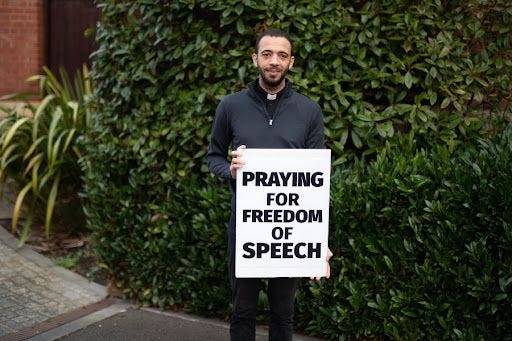Meet the priest highlighting England’s abortion ‘censorship zones’
"I was praying for freedom of speech on that occasion, which is a lawful thing to do."

Fr. Sean Gough has become one of the most recent individuals to highlight the existence of abortion “censorship zones” in England.
Late last year, the priest entered an area of the city of Birmingham near an abortion facility covered by a Public Spaces Protection Order (PSPO).
The order, introduced in September 2022, prohibits “protesting” against “abort…
